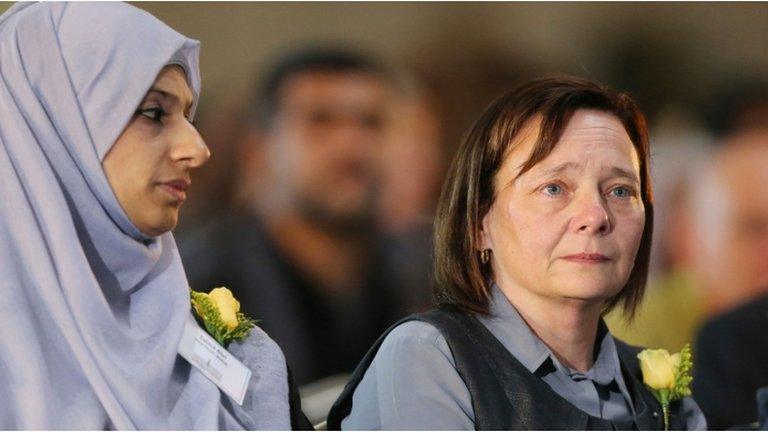Alan Henning death: Charity's 'failings' over killed aid worker
- Published
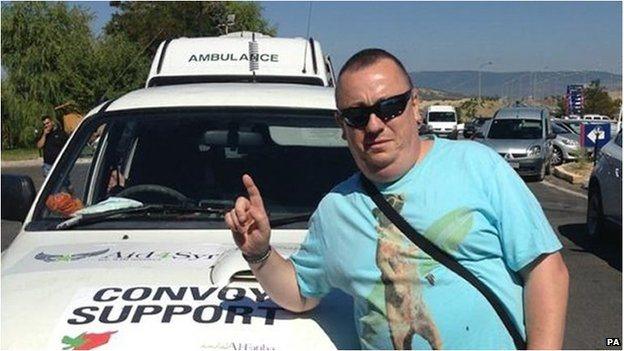
Alan Henning was kidnapped by Islamic State after travelling to Syria in 2013
A charity that British aid worker Alan Henning was volunteering for before his kidnap and murder in Syria has been criticised by the Charity Commission.
The Commission investigated Al-Fatiha Global over "serious concerns about its governance and financial management".
The watchdog concluded the charity had failed to "protect its property, assets and people".
Mr Henning, a taxi driver and father-of-two from Salford, was killed by the Islamic State group in 2014..
He had been travelling with one of the charity's convoys when he was kidnapped and held hostage for almost a year before his death.
Amid allegations the group had links to extremism, the Charity Commission later took control of Al-Fatiha Global and appointed lawyer Michael King to oversee it as an interim manager.
The regulator has now published its findings., external
They include the fact that the charity failed to alert the Foreign Office or any other authorities when Mr Henning was abducted.
The Commission found trustees had initially claimed Mr Henning was working for a separate charity at the time, contrary to information discovered by police.
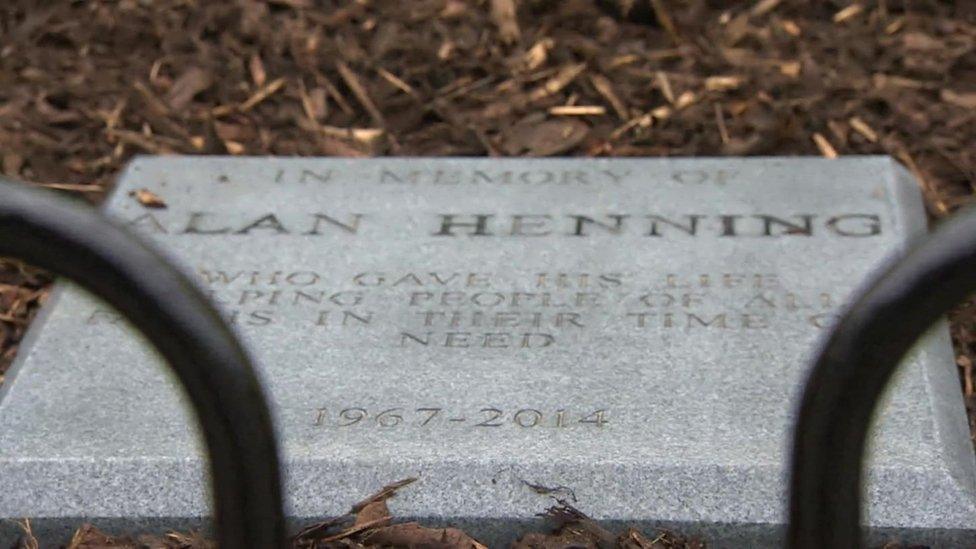
A memorial garden was created in memory of Alan Henning in Eccles in 2015
The report said: "The fact that they did not know or regard [Mr Henning] as a volunteer of the charity when he was, and his safety was in their custody whilst on the convoy was further evidence of lack of adequate oversight and management of the charity's activities and risks arising from them."
The watchdog said its concerns had been "further increased" by a national newspaper report purporting to show a volunteer for the charity posing with masked gunmen in Syria.
'Raised serious questions'
The charity declined to comment on the person's identity and the inquiry was not ultimately able to establish if the volunteer was working for the organisation.
However, the Charity Commission described the report as "damaging" and said the matter "raised serious questions about the adequacy of the charity's oversight and guidance to its volunteers".
The report concluded the charity had failed to run adequate "risk management", guidance and training to its volunteers and to properly track its funding.
The commission said the trustees co-operated with the inquiry and that it was satisfied the charity is now operating lawfully.
However, it said the report had highlighted a range of "issues" for the wider charity world to be aware of, including a need to remain vigilant regarding extremism.
It said working at times of humanitarian crisis could be "difficult" and "complex", and a "failure to take reasonable steps to protect people cannot be excused by the difficult context a charity is working in".
The BBC has made attempts to contact the charity's current leaders for comment.
- Published14 January 2015
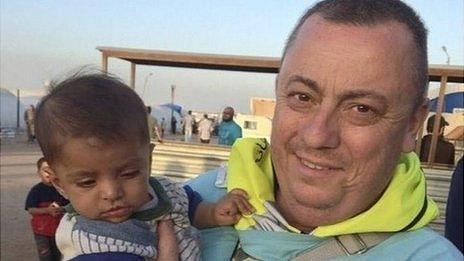
- Published4 October 2014
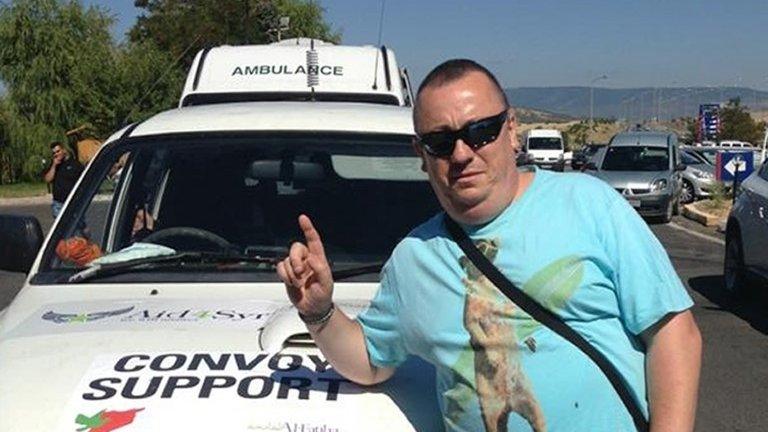
- Published3 October 2014
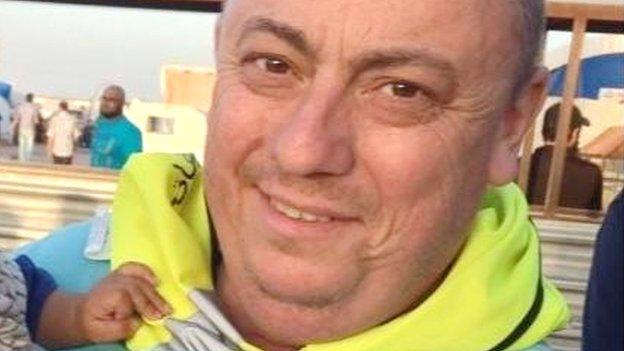
- Published12 October 2014
